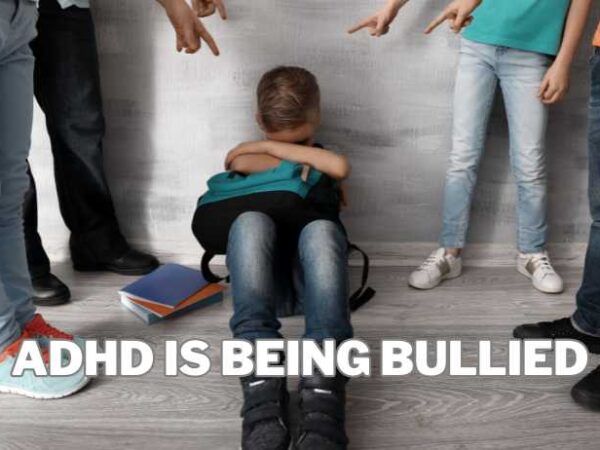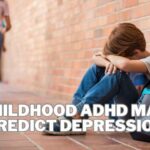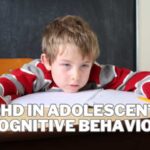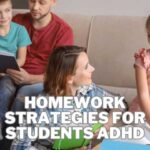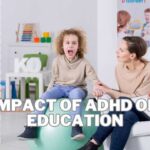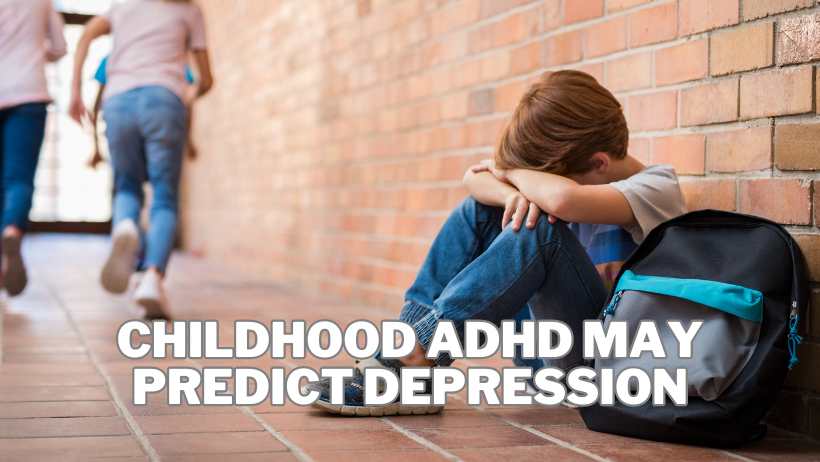
Children diagnosed with ADHD between ages 4-6 have a higher risk of depression and suicidality in their teen years, especially girls. Early identification and treatment are vital to prevent these issues. Medications and therapy are treatment options. Learn more here.
In a recent study published in the Archives of General Psychiatry, it was found that children diagnosed with ADHD between the ages of 4 and 6 were at a higher risk of developing depression and suicidality in their teen years. This risk was particularly elevated for girls compared to boys. The Importance of Parental Support in Navigating Transitional Phases with Confidence
The study also highlighted the importance of identifying and treating ADHD as early as possible to prevent these issues. Treatment options for ADHD include medications and cognitive behavioral therapy. This article provides valuable insights into the potential long-term effects of childhood ADHD and emphasizes the need for early intervention and support.
Study Shows Higher Risk of Depression and Suicidality
A recent study published in the Archives of General Psychiatry has shed light on the link between ADHD and higher risks of depression and suicidality. The study found that children diagnosed with ADHD between the ages of 4 to 6 were more likely to develop depression and suicidality during their teenage years. Interestingly, the study also revealed that girls with ADHD had a higher risk compared to boys.
The study further revealed that different subtypes of ADHD have varying effects on mental health. Patients with ADHD who primarily struggle with attention problems were found to be at a higher risk of developing depression. On the other hand, patients who exhibited hyperactivity were more likely to experience suicidality.
Importance of Early Identification and Treatment
These findings highlight the importance of early identification and treatment of ADHD. Detecting and addressing the condition as early as possible can be crucial in preventing the development of mental health issues later in life. It is imperative for parents to have open discussions with their physicians about treatment options for their child. The Impact of ADHD on Education: Challenges Faced by Millions of Children and Adolescents
There are various treatment options available for children with ADHD. Medication, such as stimulants, can help manage symptoms and improve focus. Additionally, cognitive behavioral therapy (CBT) has been proven to be effective in teaching children coping mechanisms and developing positive behaviors.
Book Recommendation: Driven to Distraction
For those seeking further insight into Attention Deficit Disorder, a highly recommended book is “Driven to Distraction.” This book, written in clear and understandable language, offers valuable perspective on ADHD. It provides readers with a deeper understanding of the condition and strategies for managing its impact on daily life.
Author Information
Dr. Desmond Lew, a board-certified pediatrician, is the author of this comprehensive article. With his expertise in the field, Dr. Lew has dedicated his career to helping children and families navigate the challenges of ADHD and other pediatric health concerns. He received his medical degree in 1989 and specialized in pediatrics at the University of California, Irvine Medical Center (UCIMC).
ADHD and Child Development
ADHD can significantly impact a child’s development, causing various challenges throughout their lives. Children with ADHD often struggle with impulsivity, inattention, and hyperactivity, which can affect their academic performance and social relationships.
In an educational setting, students with ADHD may find it difficult to concentrate, follow instructions, and complete tasks. These challenges can lead to frustration and a sense of inadequacy, potentially impacting their self-esteem and overall well-being. Furthermore, difficulties in social interactions may result in strained relationships with peers, contributing to feelings of isolation.
ADHD Diagnosis and Criteria
Accurate diagnosis of ADHD is crucial for effective intervention. Physicians follow specific diagnostic criteria to identify ADHD, including evaluating the persistence and intensity of symptoms. Common symptoms associated with ADHD include inattention, impulsivity, hyperactivity, and difficulty with organization and time management.
It is essential for parents and caregivers to seek professional help if they suspect their child may have ADHD. An accurate diagnosis can provide a better understanding of the child’s needs and allow for appropriate treatment and support. Communication Strategies for Parents of Children with ADHD
Co-Occurring Mental Health Conditions
ADHD often co-occurs with other mental health conditions, further complicating the child’s overall well-being. Common comorbidities include anxiety disorders, mood disorders (such as depression), and learning disabilities. The presence of these additional challenges can significantly impact the child’s quality of life and make it more difficult to manage ADHD symptoms.
It is crucial to recognize the co-occurrence of mental health conditions alongside ADHD to provide comprehensive care and support for the child. Treating these comorbidities in conjunction with ADHD can optimize their overall functioning and well-being.
Risk Factors for Depression and Suicidality
Various factors contribute to the increased risk of depression and suicidality in individuals with ADHD. ADHD itself presents a significant risk factor for these mental health concerns. However, the interaction between ADHD and other risk factors, such as family history of mental illness, environmental influences, and socioeconomic status, further amplifies these risks.
Recognizing early warning signs for depression and suicidality is crucial in preventing severe outcomes. Parents, caregivers, and educators should be vigilant in identifying changes in behavior, mood, and social interactions. Early intervention and support can make a significant difference in mitigating the impact of these risks.
Preventive Measures and Support
There are strategies and support systems available to prevent depression and suicidality in children with ADHD. It is crucial to provide a supportive environment that fosters positive mental health and resilience.
Educating parents and caregivers about ADHD and its potential impact on mental health is a fundamental step in prevention. This knowledge allows them to recognize and address any emerging issues promptly. Additionally, establishing a network of support, including mental health professionals, teachers, and peers, can enhance the child’s well-being and provide guidance on managing ADHD-related challenges.
Future Research and Implications
While significant progress has been made in understanding the relationship between ADHD and mental health, there is still much to learn. Future research should focus on uncovering additional insights into the complexities of ADHD and its impact on mental health outcomes.
The implications of ongoing research are vast, as they can inform the development of improved treatment and intervention strategies. By continuing to investigate the connection between ADHD and mental health, healthcare professionals can provide more tailored and effective approaches to support individuals with ADHD. What to Do When Your Child with ADHD Is Being Bullied
In conclusion, the study revealing the higher risk of depression and suicidality in individuals with ADHD underscores the importance of early identification and intervention. By promptly addressing the condition, exploring treatment options, and creating a supportive environment, clinicians, parents, and educators can mitigate the potential negative impact on a child’s mental health and overall well-being.
Continued research in this field will undoubtedly lead to further advancements in understanding and managing ADHD and its associated challenges.
